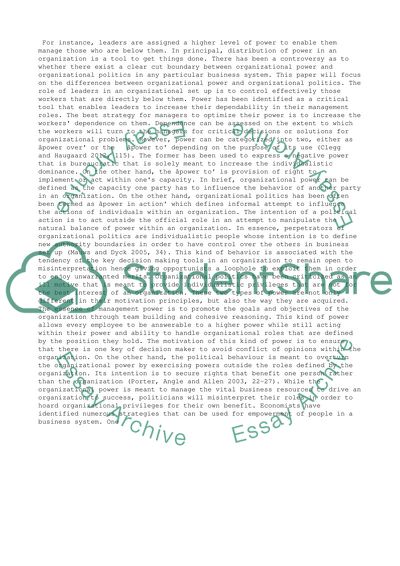Cite this document
(“Power and Politics in an Organization Essay Example | Topics and Well Written Essays - 1000 words”, n.d.)
Retrieved from https://studentshare.org/management/1484736-what-is-the-difference-between-power-and-politics
Retrieved from https://studentshare.org/management/1484736-what-is-the-difference-between-power-and-politics
(Power and Politics in an Organization Essay Example | Topics and Well Written Essays - 1000 Words)
https://studentshare.org/management/1484736-what-is-the-difference-between-power-and-politics.
https://studentshare.org/management/1484736-what-is-the-difference-between-power-and-politics.
“Power and Politics in an Organization Essay Example | Topics and Well Written Essays - 1000 Words”, n.d. https://studentshare.org/management/1484736-what-is-the-difference-between-power-and-politics.


